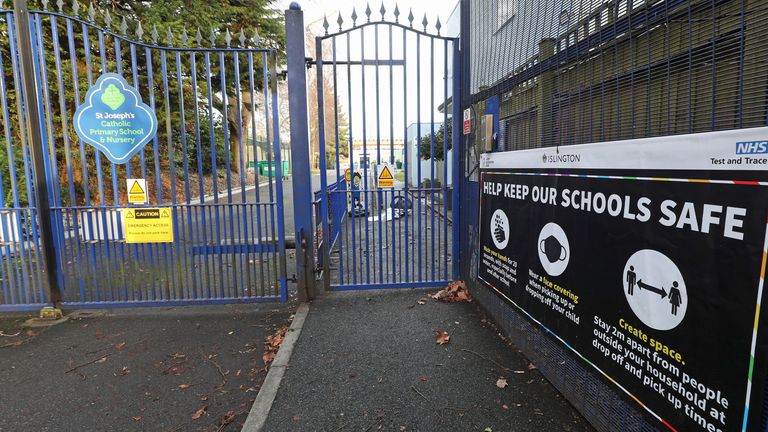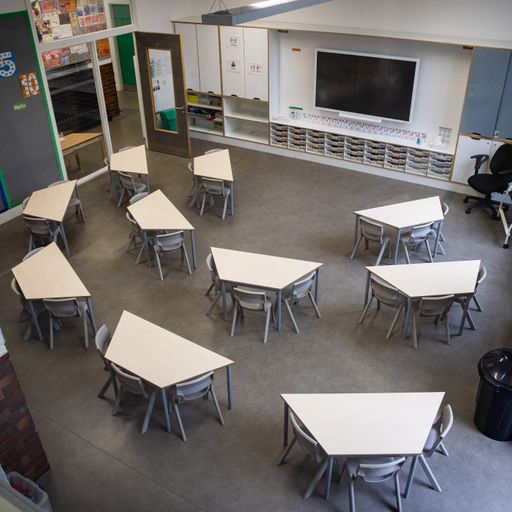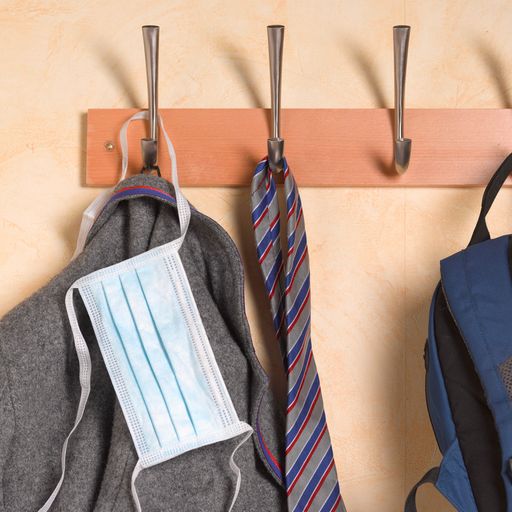Pressure is mounting on the government to keep all of England's schools closed when the new term starts this week amid fears over the spread of COVID-19.
But it comes as Ofsted chief inspector Amanda Spielman said children's education cannot be "furloughed" for months while the country waits for the coronavirus pandemic to subside.
Also, Boris Johnson has said he has "no doubt" that schools are safe and parents should send primary-age children back to classrooms this week in schools which are opening.
Most primaries in England are scheduled to open on Monday, followed by a staggered start for secondary schools a week later, with GCSE and A-level pupils set to return first.
Under a "contingency framework", the primaries which are staying shut on Monday are in London and some parts of the South East, including 11 areas of Essex, nine areas of Kent, four areas of Hertfordshire, two areas of East Sussex and Milton Keynes in Buckinghamshire.
In Brighton and Hove, which is not subject to the framework, schools have been advised by the local council to implement remote learning until the 18 January, arguing its COVID-19 infection rate is now 500% higher than it was at the beginning of December.
Writing in The Sunday Telegraph, Ms Spielman said: "The good news is that almost everyone now recognises the importance of balancing the risks of transmitting infection against the harms to children from keeping schools closed.
"There is a real consensus that schools should be the last places to close and the first to reopen, and having argued for this since last spring, I welcome it."
She added: "Because it is increasingly clear that children's lives can't just be put on hold while we wait for vaccination programmes to take effect, and for waves of infection to subside.
"We cannot furlough young people's learning or their wider development."
The prime minister told the BBC's Andrew Marr: "Schools are safe. It is very, very important to stress that.
"The risk to kids, to young people is really very, very small indeed. The risk to staff is very small.
"I would advise all parents thinking about what to do: look at where your area is, overwhelmingly you'll be in a part of the country where primary schools tomorrow will be open."
The government has said it will only close schools and move to "remote education" as a last resort but Education Secretary Gavin Williamson said on Friday that primary schools in all 32 London boroughs will remain shut this week - rather than just those in certain boroughs as he had announced days earlier.
The move prompted the National Education Union (NEU) to say that all primary schools should remain closed for at least two weeks following the Christmas break.
Kevin Courtney, the NEU's joint general secretary, said its members have "a legal right to refuse to work in unsafe conditions which are a danger to their health and to the health of their school communities and more generally".
The leader of Birmingham City Council has written to the education secretary urging him to reconsider the start of face-to-face learning in primary schools on Monday for those in Tier 4 areas.
Council leader Ian Ward told Mr Williamson the spread of the new variant of COVID-19 and the high case rate had increased concerns over the return to school.
Mr Ward told the BBC that Birmingham schools should carry out a risk assessment and, if it was shown it was not safe to open schools, the council would back the head teachers' decision.
He said there had been a rise in infections in Birmingham since coming out of the November lockdown, with the cases among five-to-nine year olds increasing from 93 per 100,000 on 7 December to 174 per 100,000 on 27 December.
The government's handling of the situation has prompted the National Association of Head Teachers (NAHT) union, along with the Association of School and College Leaders, to make preliminary steps in legal proceedings.
A large group of head teachers is also calling for the scrapping of GCSE and A-level exams this summer.
Jules White, headteacher at Tanbridge House School in Horsham, West Sussex, told Sky News: "I think it's going to be very difficult to continue with GCSE and A-Level exams in the way they are being set out.
"These are national exams yet many children are experiencing different levels of advantage or disadvantage, and I think the government has to bite the bullet and recognise this."
A Department for Education spokesperson said children's education "has consistently been a national priority" and classrooms should "reopen wherever possible" in the new term.
"Schools will continue to implement appropriate safety measures to help mitigate the risk of transmission," they said.
"As we've said, we will move to remote education as a last resort, with involvement of public health officials, in areas where infection and pressures on the NHS are highest."






